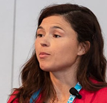Kia ora koutou,
I’ve decided to write some regular posts about what is going on with ORSNZ, and also give my thoughts on OR in NZ and around the world more generally. These will be “Inside ORSNZ” posts so you should be able to recognise and filter them appropriately 😊
The ORSNZ Council recently commissioned a strategic review of ORSNZ with an eye to redeveloping and revitalising the ORSNZ website as the hub of the society. This strategic review has been completed and the Council is now deciding on whether to proceed with the website refresh.
Unfortunately, COVID-19 and its latest (Delta) incarnation means that for the 2nd year in a row there will be no ORSNZ Annual Conference. This is a real shame as the Annual Conference is a great opportunity to catch up and see what everyone has been up to. I hope the website refresh, if it goes ahead, will be able to fill this gap a little in the future by creating a more vibrant online community for ORSNZ. ORSNZ can also provide some funding for smaller local or research area events particularly through the Special Interest Groups (SIGs) or RIGs (Regional Interest Groups).
A couple of other “hats” that I wear have given me some interesting insights recently.
Since July this year I have been Deputy Director of Te Pūnaha Matatini and observing the diversity of modelling and the focus on impact, both within the community and at a policy level, has been really exciting. The value of transdisciplinary research is being recognised within the research landscape and one of our Council members recently remarked (on transdisciplinary research) that “It all sounds like what OR has been doing for 70 years.” I wholeheartedly agree with this and over the last 5 years it seems to me that modelling in general and OR modelling in particular has had somewhat of a renaissance due to the wealth of data now available and the greater acceptance of models. One example of this is a research project simulating the critical care system in Aotearoa New Zealand that Ilze Ziedins, Cameron Walker and I worked on. Much of the recent modelling has been under the news “brands” of artificial intelligence (AI) and data science. I think there are also exciting new opportunities for combining machine learning and traditional OR models for real-world decision making.
With respect to AI, I am one of the Aotearoa New Zealand representatives in the Global Partnership on AI (GPAI), working in the AI and Pandemic Response Working Group. I am co-leading a project on Immediate Response to the Pandemic and have had a chance to review multiple AI initiatives being used to combat COVID-19. I was pleased to see a reasonably standard integer programming approach being used to balance patient numbers across hospitals within US states. The full living repository of AI initiatives for pandemic response can be found here.
OK, that is enough from me for now. Please don’t hesitate to reach out with comments/questions and let me know if there is anything you would like publicised next month.
Noho ora mai, Mike (ORSNZ President)




